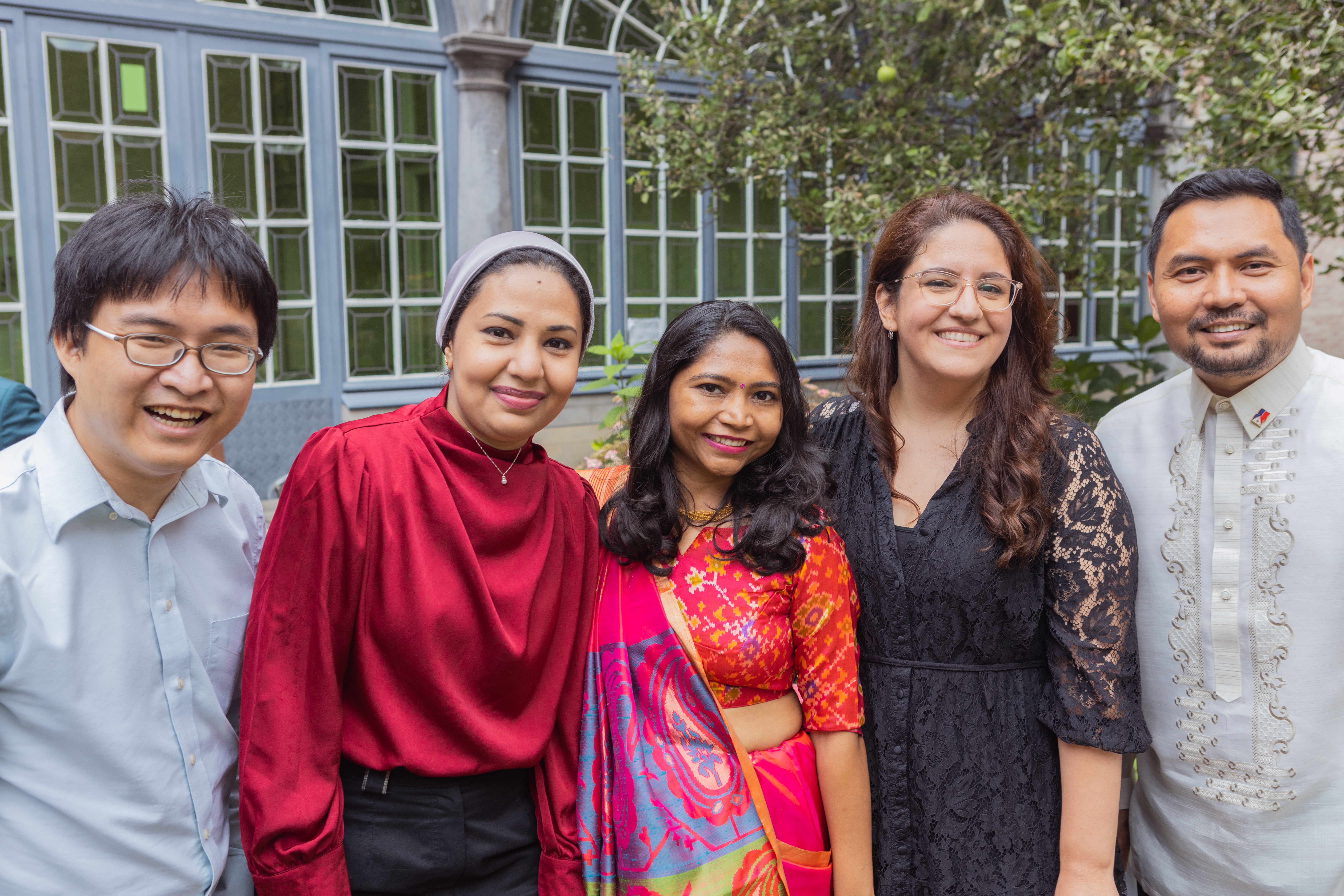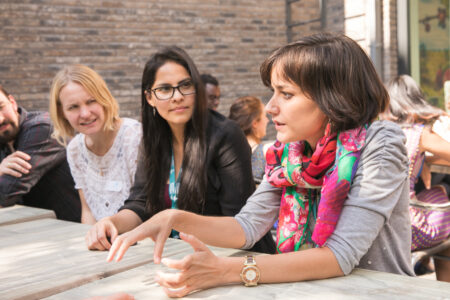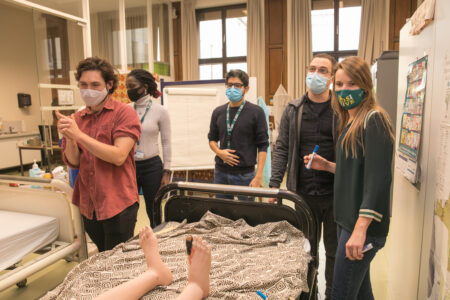From a young age, Sarah Nemmar, from Switzerland, dreamed of being trained in tropical medicine and working as a nurse abroad. “I have heard only good things about this profession from my mother, who had pursued the same path 25 years earlier,” she says.
In 2025, the world needs more people like Nemmar. According to the World Health Organisation (WHO), neglected tropical diseases continue to affect 1.5 billion people, keeping disadvantaged communities trapped in poverty and poor health. Determined to be part of the solution, Nemmar chose to study at the Institute of Tropical Medicine in Antwerp, Belgium.
Established in 1906, ITM has grown from a small training institution to a globally recognised institute for postgraduate training, ranked in the top 7.2% worldwide and #11 in Belgium (Centre for World University Rankings). It has developed a legacy of advancing science and health for all through research in outbreak response, reducing the burden of diseases, antimicrobial resistance, and more, along with advanced tropical medicine and international health programmes.

You’ll learn how society, politics, and the economy impact health, and explore ways to solve health problems through disease control, healthcare services, and policy decisions. Source: Institute of Tropical Medicine
Your career, your way
ITM has various programmes designed for tropical medicine and international health professionals. What makes them stand out? A wealth of national and international opportunities for career growth.
A postgraduate certificate from ITM is an excellent starting point into tropical medicine and international health. Plus, you can enhance your expertise through ITM’s master’s or PhD degrees, short courses, and continuing education programmes.
Nemmar recently attained the Introduction to Tropical Medicine and Challenges in International Health postgraduate certificate. The programme is designed for health professionals eager to make a difference in vulnerable communities, whether locally, nationally, or internationally. The Introduction to Tropical Medicine (INTROMED) course provides foundational clinical and biomedical knowledge on diseases and health challenges that occur in (sub)tropical settings, focusing on epidemics, migration, and high-risk groups, including migrants, children, adolescents, and pregnant women. Meanwhile, the Challenges in International Health (CIH) course further explores global health crises, emphasising crisis preparedness for communicable and non-communicable diseases. It will teach you to look at health challenges from different perspectives and to develop a multidisciplinary approach to address them.
This combination, presented as “one package,” helped Nemmar develop the “reflective and clinical skills for my career.” Currently, she is specialising in paediatrics in Brussels. “I’m realising how treatable rare pathologies are, despite children dying of hunger and dehydration,” she says. “This allows me to put my practice into perspective and to think at the macro level for each treatment.”
Like Nemmar, Dr Mariam Viollet sought to expand her expertise at ITM, too. An alumna of the Tropical Medicine and International Health postgraduate certificate, she found the programme improved her clinical and research skills. It comprises three short courses: Research Approaches in International Health, Challenges in International Health, and Tropical Medicine and Clinical Decision Making. Any of these courses can also be taken on their own.
If you’re looking for other options, there are the Advanced Tropical Medicine and Challenges in International Health and Research Approaches and Challenges in International Health postgraduate certificates as well.
“I really enjoyed my postgraduate study experience at ITM,” says Dr Viollet. “Quality education is always provided in an open-minded learning framework based on interactions between peers and teachers.”

From sports to cultural activities and more, there are many opportunities to get to know the welcoming community at ITM. Source: Institute of Tropical Medicine
Build a career that changes the world
Thanks to its central location in Europe, ITM attracts students and faculty from diverse backgrounds, creating an environment where fresh ideas spark meaningful discussions. Its small class sizes mean you build close relationships with professors and peers, making learning more engaging. Instructors and lecturers adopt personalised teaching styles, “starting from each person’s skills to put our thinking into practice in concrete examples,” says Nemmar. That sense of connection was valuable for Dr Viollet. “I discovered a fascinating multicultural world, made of exciting and devoted people, committed around a base of strong common values,” she says. “I felt like I belonged to a family whose primary goal is ensuring access to quality health (in its most holistic sense) and keeping people at the heart of it all.”
Outside the classroom, expert faculty members guide students through fieldwork in tropical and resource-limited settings. This academic excellence, practical exposure, and expert mentorship give ITM graduates a head start in the global health sector. “I noticed that it was easier for me to secure jobs during all my internships or meetings,” Nemmar shares. “In the future, I hope to work for an NGO while continuing to develop my skills.”
Nemmar isn’t the only one achieving goals. Manju Pollet, who completed the Introduction to Tropical Medicine and Challenges in International Health programme in 2024, has seen her career prospects expand. “I’ve learned a lot because the programme covered many disciplines, including pharmacology, veterinary medicine, midwifery, and nursing. I’m now considering volunteering, and thanks to ITM, I understand how to work in low- and middle-income countries, not just in high-income ones.”
All ITM graduates (re-)enter the workforce fully equipped with the knowledge, experience, and global network to confront major health challenges. Amongst its alumni network of over 5,000 professionals worldwide, many have gone on to work with leading organisations like the WHO, Médecins Sans Frontières, and other health NGOs.
Follow the Institute of Tropical Medicine on Facebook, BlueSky, Instagram, and LinkedIn. Or listen to their podcast “Transmission” to find out more about their work.












